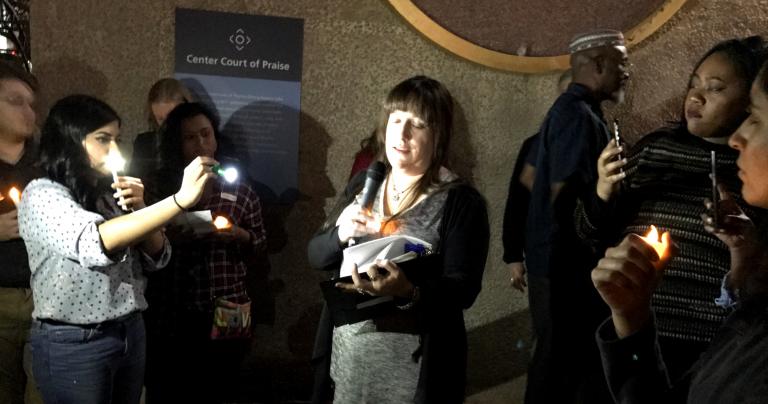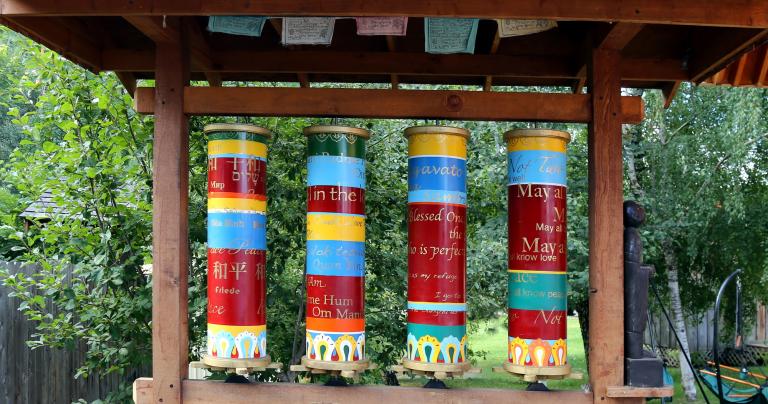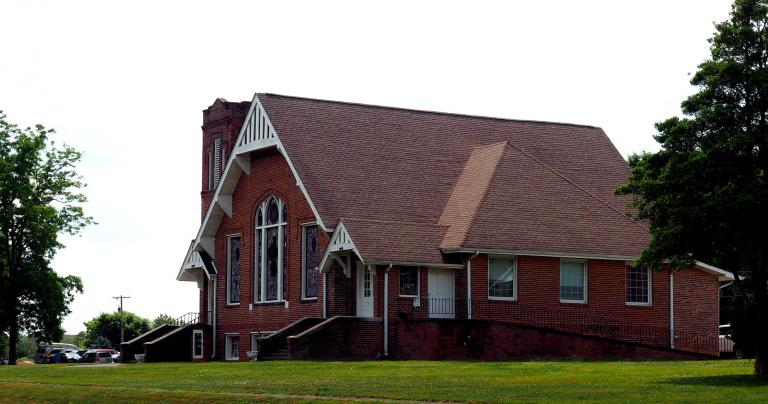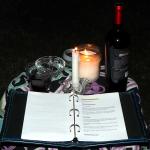In our recent discussions on Pagan priesthood, several people mentioned that they learned something of value from priests and other clergy in other religions. I definitely fall into that category – maybe you do too. Maybe there are lessons and other examples from your religious past that can help you in your Pagan future.
These are some of the important things I learned from clergy in other religions. None of these things are unique to these religions, but this is where I learned them.
Baptists: bivocationalism and emotional worship
It’s tempting to say that the only thing I learned from the Baptists is what not to do. When it comes to theology and doctrine that’s definitely true. But most Baptists – including Baptist ministers – are good people trying to do good work. I learned a few helpful things watching them while I was growing up.
In this case, “bivocationalism” is used for someone who serves as ordained clergy but who also holds a regular job in the secular world. Early in my career I worked with an engineer who was also the pastor of a very small Baptist church. There were times when he’d say “I can’t work late on Wednesdays – I have to preach.” Bivocationalism limits what you can accomplish in either career, but it makes it possible to serve as clergy without being dependent on parishioners for your livelihood.
I hated the loud, emotional, “preachin’ prayin’ singin’” services of my Baptist childhood. I needed the kind of spirituality found in mystery and silence. But after I got away from it and looked back – and after I sat through one too many overly intellectual services in other churches – I realized the value of the kind of worship you can feel not just in your heart but also in your gut. I need both silence and ecstasy, and I try to incorporate both into my Pagan worship.
Methodists: pastoral care and humanitarian work
I was a Methodist from my mid-20s into my early 30s. That was a very difficult time in my life. I leaned heavily on the ministers in the churches I attended, and they were always there for me. That includes one night when I was in what I’ll call “great despair” and asked the minister to come to my house right away to talk and pray. And he did.
I remain impressed with the humanitarian work done by Methodists, both individually and collectively. What I see is rarely the kind of tourism and proselytizing disguised as service I see in more conservative denominations. Instead I see fundraising to send money to local humanitarian groups in other countries where it can do the most good. There are some Pagan groups who do this kind of work, but not many – we need more.
Unitarian Universalists: setting boundaries and social justice
I’ve been a UU for 16 years now. That’s far longer than I was a Methodist. If you consider that I wasn’t really aware of what was going on when I was a baby in the nursery of various Baptist churches, I’ve been a UU at least as long as I was a Baptist. And instead of just observing ministers or engaging with them as a parishioner, now I’m actively working with them as a lay leader.
Although I’m a legally ordained priest who functions as clergy on a daily basis, in a UU setting I am laity. Unitarian Universalism has some strict and formal requirements for who can be a UU minister. I don’t meet those requirements, I don’t want to meet them, and I don’t want to be a UU minister – that’s not my calling. I respect the boundaries around UU ministry.
And although my Methodist role models demonstrated this, I’ve learned even more about setting pastoral boundaries from UU ministers. As I say here all the time, I’m not a psychologist and I can’t provide therapy. I can provide short-term pastoral care, but if you need more than that I have to refer you to a mental health professional – because I’m not one.
Christian theologian Karl Barth (1886 – 1968) said “preach with the Bible in one hand and a newspaper in the other.” I saw little of that from the Baptists and some of it from the Methodists, but lots of it from the Unitarian Universalists… although for the UUs you have to replace “the Bible” with “the six sources of our living tradition.” And it’s not just sermons on social justice – I see UU ministers on the front lines of political and community action all the time.

Buddhists: itinerant ministry
I’ve never been a Buddhist, but like many Pagans I explored Buddhism during my days as a seeker. I learned a lot that’s been helpful to me. Much of that is Buddhist teachings and practices, but some is what I learned observing the people who were teaching me.
An internet search for Buddhist temples turns up far more here in Texas than I assumed, but the Buddhist monks and teachers I’ve known have all had an itinerant ministry – they have no single fixed congregation or monastery. Many are bivocational, while others write, teach, and lead meditation at friendly churches and community centers. That’s a hard way to make a living – as any number of Pagans can tell you – but it’s a model that doesn’t require much in the way of infrastructure.
Catholics: the daily office
The practice of multiple daily prayers and worship is not limited to Catholic priests. Some Protestant ministers and Jewish rabbis do this, and praying five times a day is a requirement of all Muslims, not just imams. It was a part of Pagan temple worship in some places in ancient times. But it is the image of Catholic priests – and especially Catholic monks – spending regular time in worship and prayer day in and day out that has inspired my own practice. I’ve been praying four times a day every day for eight years.
I always thought Catholic priests were required to say Mass every day. According to this article by a canon lawyer, that’s not true. But they are required to pray the Liturgy of the Hours every day.
Here’s a very good Pagan approach to the daily office by ADF priest Rev. Lauren Mart.
Learn what you can, where you can, from whoever you can
Our certification-obsessed culture tells us that whatever we want to do, we need formal training in that subject. It overvalues classroom training and undervalues learning by doing – and learning by watching. I certainly value formal education and training: my home office wall has three diplomas and my certificate as an OBOD Druid hanging on it. I hope someday we’ll have good, solid, robust training programs for Pagan and polytheist priests in many traditions.
But until then – and even afterwards – those of us who want to be Pagan clergy can learn a lot by observing clergy of other religions.


















